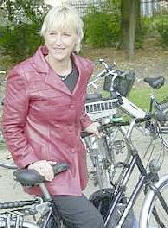|
A first draft produced by the convention made no mention of the need for sustainable development, Lefevre said. "One of the biggest steps forward since Rio has simply gone," he said, referring to the 1992 United Nations Earth Summit in Rio de Janeiro. The requirement to integrate environmental concerns into mainstream sectoral policymaking was also missing, he said.
Paolo Stancanelli of the convention said the body had deliberately decided to focus on the future form of institutions and decision making procedures, rather than stray into sectoral policy areas. EU governments would have the final say on the constitution's wording, he insisted.
But Lefevre countered that any provisions on the environment might be bargained out in the horsetrading over institutional power that will inevitably settle the text.
Opening the conference on Monday, Environment Commissioner Margot Wallstrom said it should provide a "strategic contribution to the consolidation of the European strategy for sustainable development."
The gathering followed up from a similar Commission event just over a year ago. In effect, it provided a platform for a list of speakers to offload their gripes over the formulation and enforcement of EU environment policy.
The chair of the European Parliament's Environment Committee
Caroline Jackson said that democratic involvement at the final
conciliation stage of agreeing EU laws was "almost meaningless."
The procedure should be opened to the public, she said.
There was "widespread public suspicion" that laws were not
obeyed, while member states consistently failed to implement
major directives without giving any hint during their approval
that they would face problems.
|

